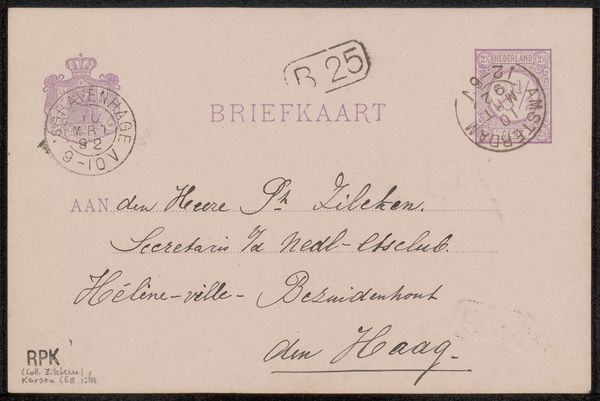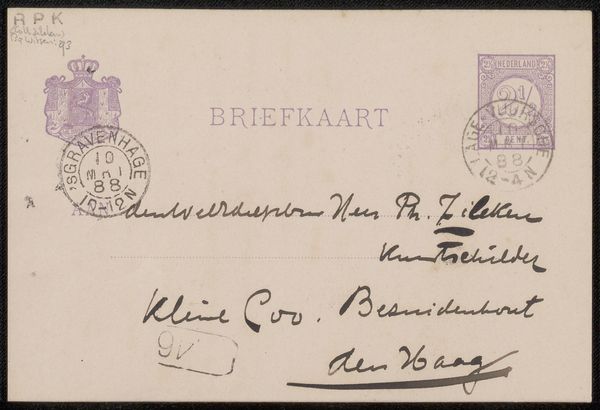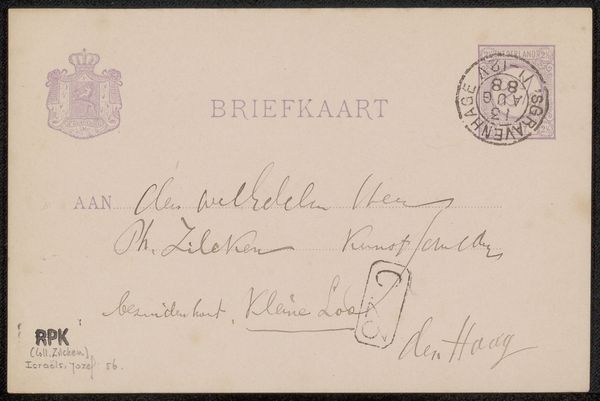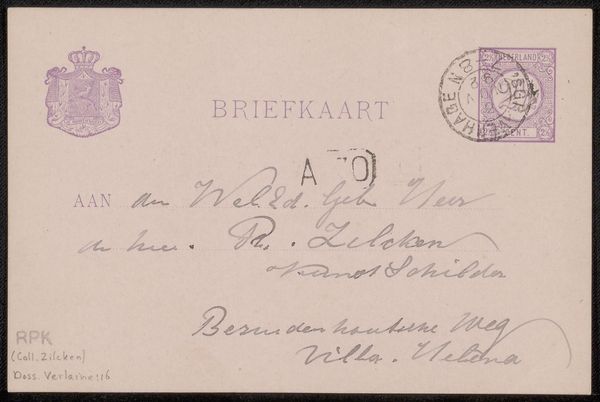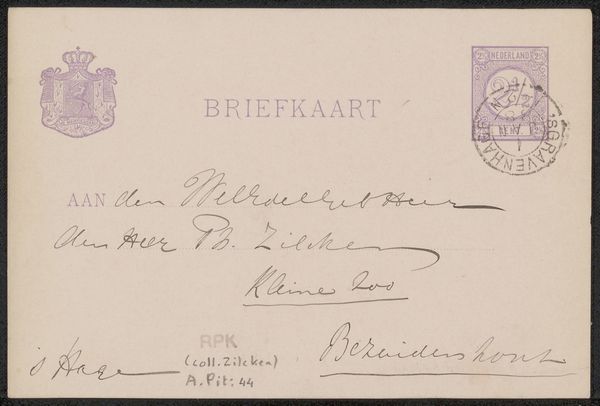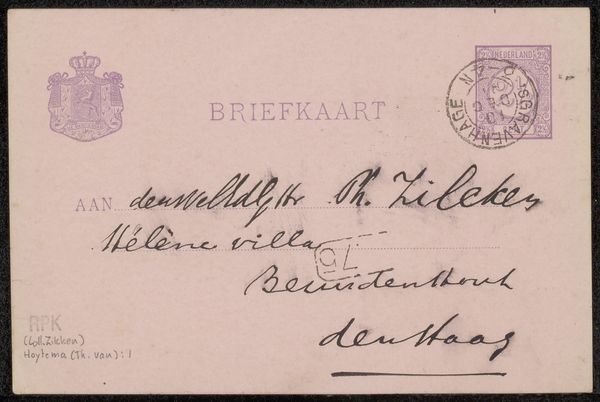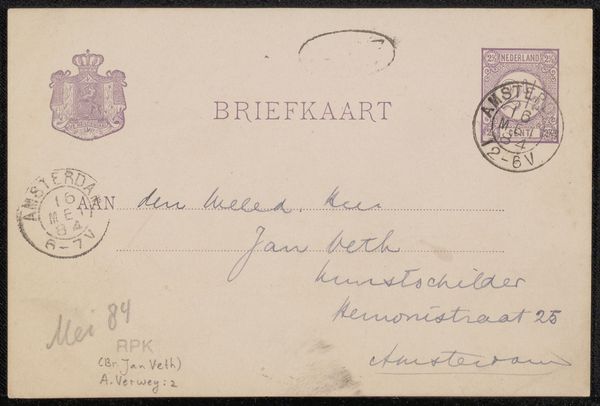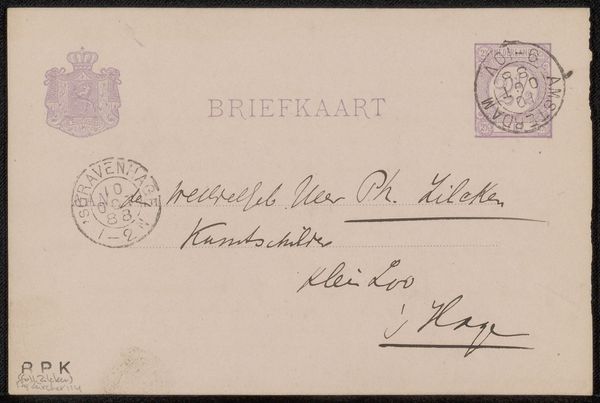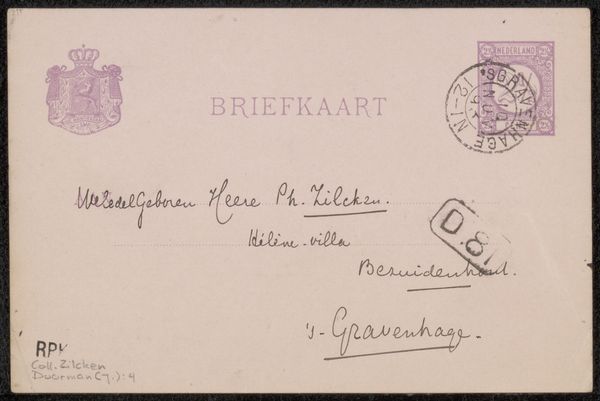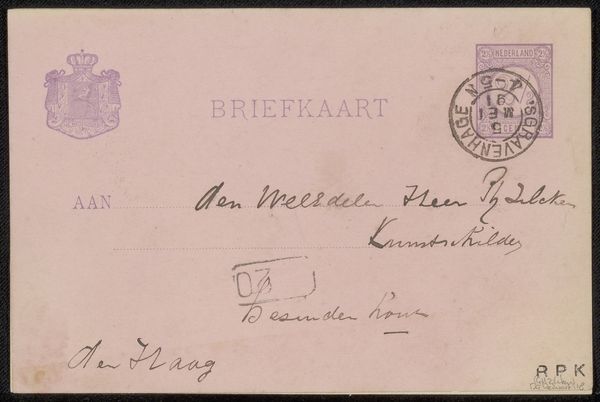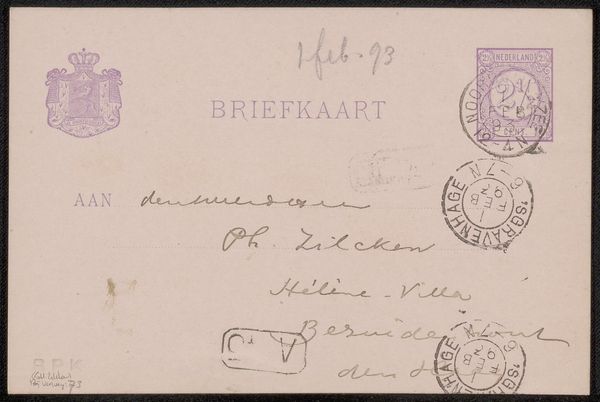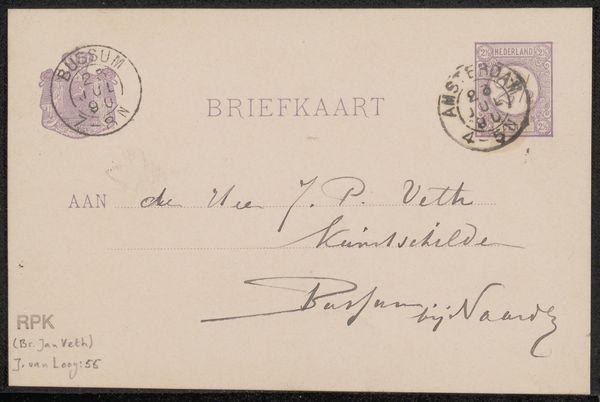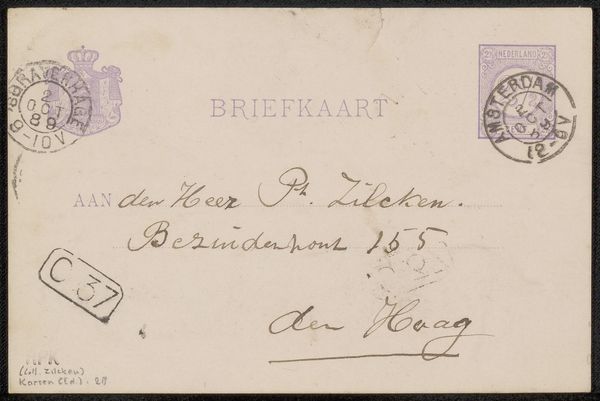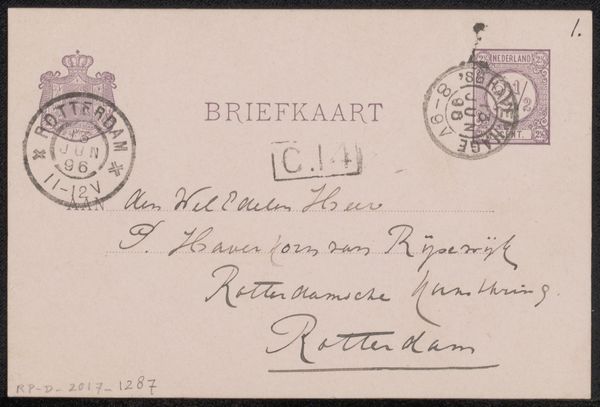
paper, photography, ink, pen
#
pen sketch
#
hand drawn type
#
paper
#
photography
#
ink
#
pen
#
post-impressionism
Copyright: Rijks Museum: Open Domain
Editor: This is "Briefkaart aan Philip Zilcken" by Eduard Karsen, created before 1889. It's a postcard made with ink on paper, featuring what looks like a pen sketch and hand-drawn lettering. I’m struck by the formality and the evidence of its journey through the postal system. What do you see in this piece that stands out to you? Curator: It's a fascinating glimpse into late 19th-century social practices, isn't it? These personal documents, when preserved, offer invaluable insights into the networks and exchanges of the artistic community. Consider the Post-Impressionist movement Karsen was associated with. They weren’t isolated geniuses but relied on systems of patronage, intellectual exchange, and the market. A simple postcard highlights this, doesn’t it? The stamps and addresses aren't just decorative; they speak volumes about the postal infrastructure and the intended recipient's social standing, addressing the recipient as "Well-born". How does the act of physically sending art, in this modest format, change how we perceive art's circulation and reception compared to how we view digital images circulating today? Editor: That’s interesting. It shows how different art’s accessibility and value were. Everything was so deliberate and considered; it required physical effort and tangible resources. Curator: Precisely. Also, notice the tension between the "everydayness" of the postcard as a mundane form of communication, with its inherent intimacy, and the now elevated status as an artwork displayed in a museum. This tension really underlines how social context shapes our interpretation of art over time. What do you make of this change in value? Editor: It really changes my perspective on something as simple as a postcard. I now see it as a small, but powerful, piece of social history. Thank you for helping me understand that! Curator: My pleasure. It's in these little fragments that history truly reveals itself, wouldn't you agree?
Comments
No comments
Be the first to comment and join the conversation on the ultimate creative platform.
